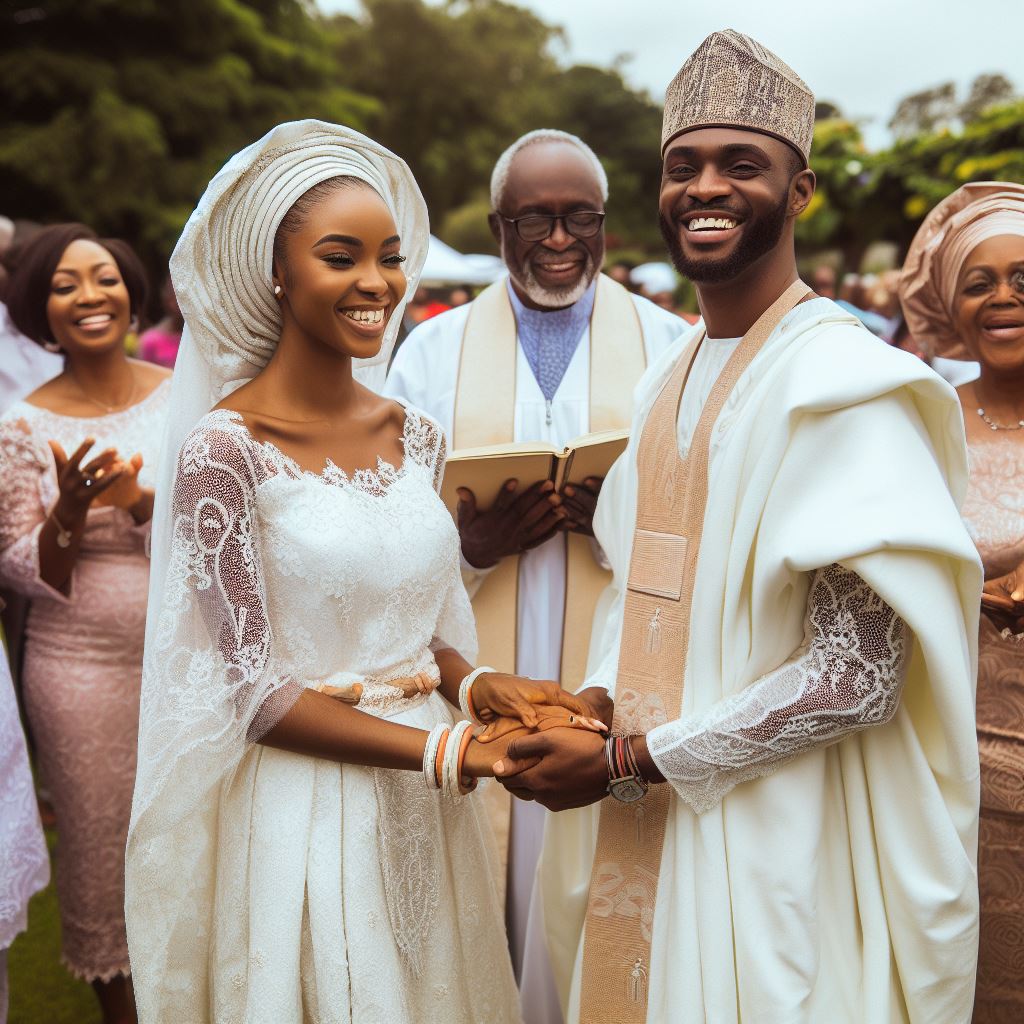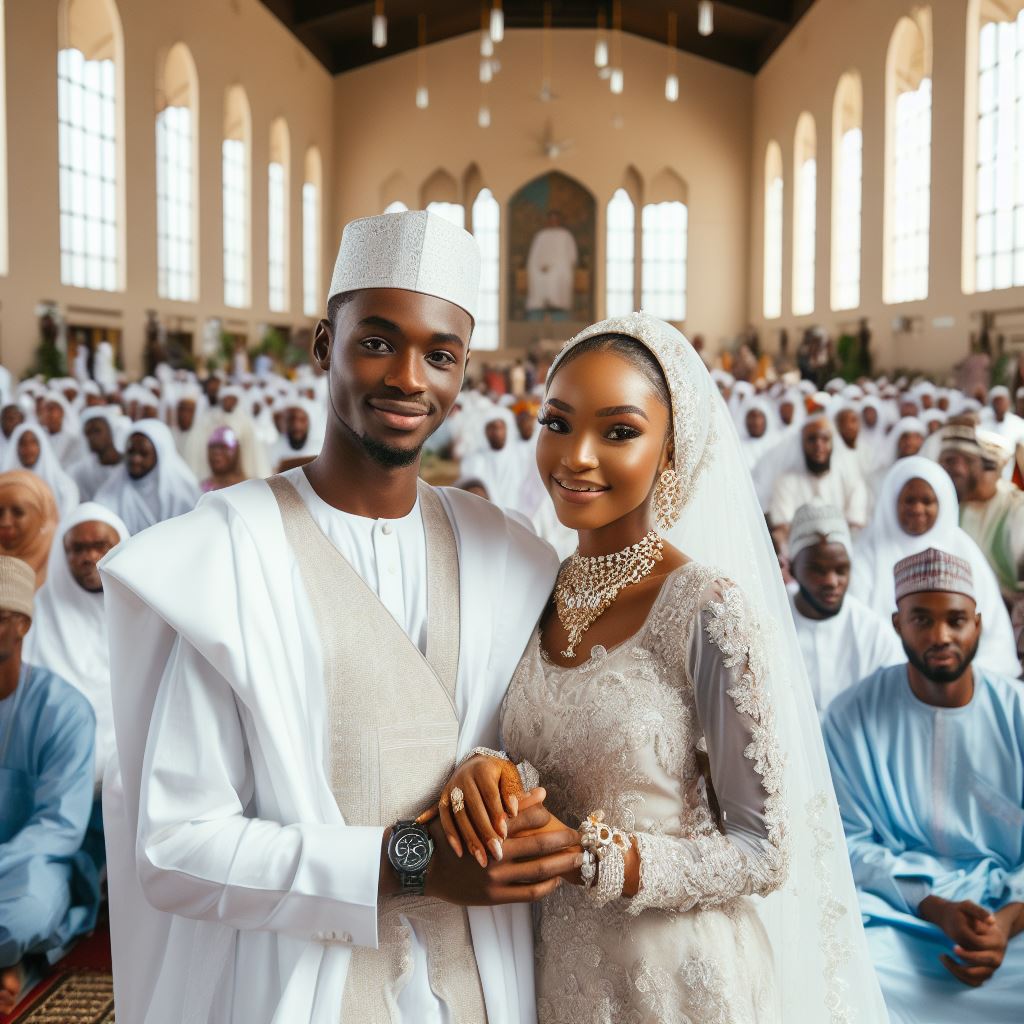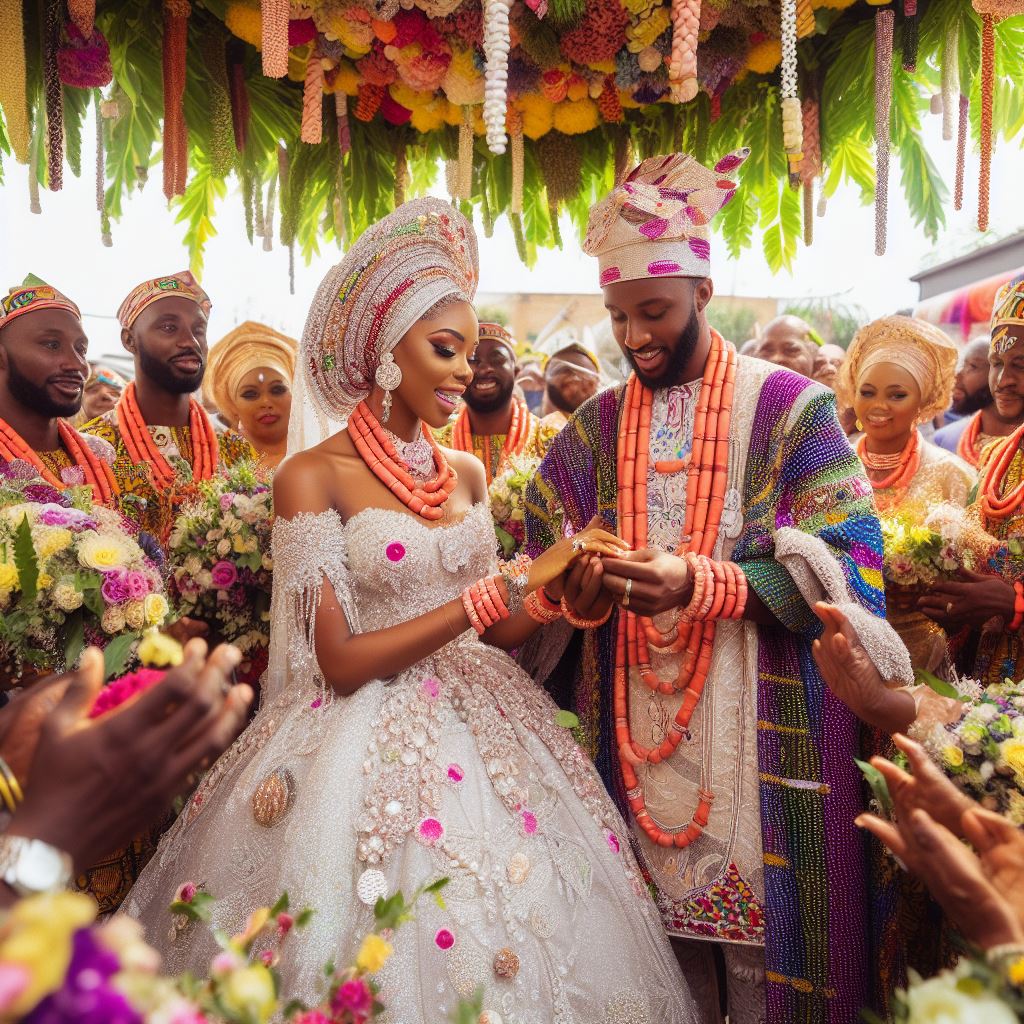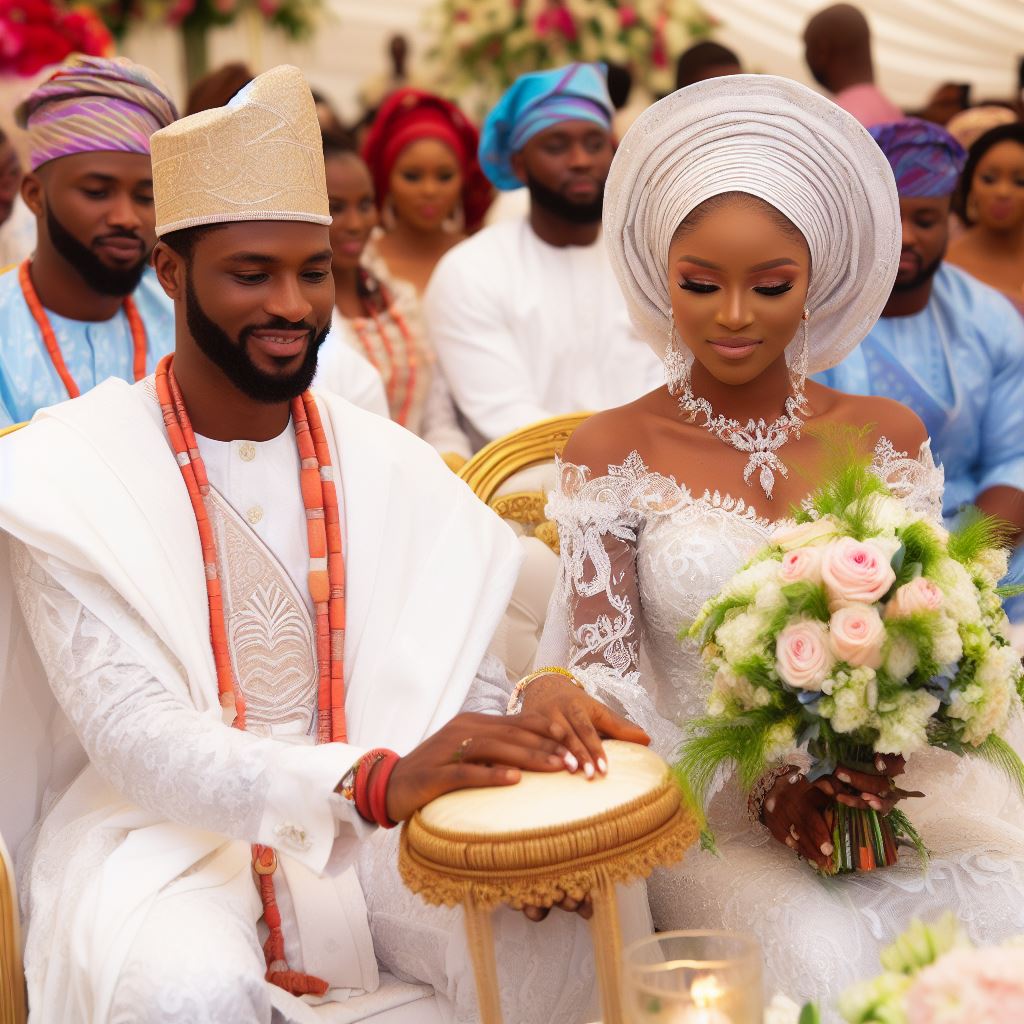Introduction
Marriage by ordinance is a concept in Nigeria that involves the legal recognition of marriage by local government authorities.
It is essential to address the common myths associated with this type of marriage to ensure accurate understanding and dispel misconceptions.
Marriage by ordinance refers to the legal recognition of marriage by local government authorities in Nigeria.
Addressing common myths associated with marriage by ordinance is crucial to provide accurate information.
Misunderstandings regarding marriage by ordinance can lead to confusion and perpetuate false beliefs.
Myths of Marriage by Ordinance
One common myth is that marriage by ordinance is not legally valid or recognized.
Dispelling this myth is important as marriage by ordinance holds legal status and provides legal protection to couples.
Another myth is that marriage by ordinance is only for couples from specific ethnic or religious backgrounds.
It is crucial to address this myth as marriage by ordinance is open to all Nigerian citizens regardless of their ethnic or religious affiliation.
Some people believe that marriage by ordinance is a quick and easy process without any requirements.
Disproving this myth is important to highlight the necessary documentation and procedures involved in marriage by ordinance.
Addressing these common myths will promote accurate understanding and ensure that couples make informed decisions.
By providing accurate information about marriage by ordinance, individuals can make informed decisions about their marital status.
Basically, addressing common myths associated with marriage by ordinance is essential to maintain accurate understanding and dispel misconceptions.
It is important for individuals to have accurate information to make informed decisions regarding their marriages.
Read: Understanding ‘Marriage by Ordinance’ in Nigeria: A Primer
Definition and Background
Marriage by ordinance refers to a legal union between two individuals that is regulated by Nigerian law.
This type of marriage is governed by specific statutory provisions and is formalized through a recognized ceremony.
It is important to note that ‘marriage by ordinance’ can also be referred to as ‘marriage under the Marriage Act.’
This type of marriage is recognized and regulated by the Marriage Act, which is a federal legislation in Nigeria.
Legal requirements and procedures for a valid marriage by ordinance
- For a marriage to be valid under the ordinance, both parties must be at least 21 years old.
- Consent from both parties is a crucial element, and they must willingly enter into the marriage.
- Both individuals must be of sound mind and not under any legal incapacitation.
- The parties must not be closely related by blood or marriage as defined by the Marriage Act.
- Notice of the intended marriage must be given at the Marriage Registry at least 21 days before the ceremony.
- Required documents, such as a valid means of identification and birth certificates, must be presented.
- The marriage ceremony must be witnessed by at least two people who are of legal age.
- The presence of an authorized marriage officer, usually a marriage registrar, is mandatory during the ceremony.
- After the marriage ceremony, a marriage certificate will be issued to the couple as proof of their union.
Historical context and significance of this type of marriage in Nigerian culture
- Marriage by ordinance holds significant historical and cultural significance in Nigeria.
- It was introduced during the colonial era when English law was adopted as the legal framework.
- This type of marriage reflects the influence of British colonial rule on Nigerian society.
- The practice was aimed at maintaining a uniform legal framework to regulate marriages across different ethnic groups.
- Marriage by ordinance was seen as a way to modernize and standardize marriage practices in Nigeria.
- It provided legal protection and recognition for both spouses, ensuring their rights and responsibilities are defined.
- Additionally, this type of marriage offers a level of certainty and legitimacy in matters of inheritance and property rights.
- Over time, marriage by ordinance has become widely accepted and is now a common choice for many Nigerians.
- It has also facilitated the integration of Nigerian marriage practices with broader international legal norms.
Generally, marriage by ordinance in Nigeria is a legally recognized and regulated form of union.
It requires adherence to specific legal requirements and procedures.
This type of marriage has historical significance in Nigerian culture, reflecting the impact of colonialism.
It ensures legal protection and recognition for couples, and offers certainty in matters of inheritance and property rights.
Despite its colonial origins, marriage by ordinance has become ingrained in Nigerian society, reflecting the ongoing evolution of marriage practices.
Read: Marriage by Ordinance vs. Traditional Marriage: What’s Different?
Common Myths and Misconceptions About Marriage by Ordinance in Nigeria
Marriage by ordinance is a legally recognized union in Nigeria, contrary to the common misconceptions surrounding it.
This section aims to address and debunk the prevalent myths associated with marriage by ordinance, shedding light on the truth behind each one.
Myth 1: Marriage by ordinance is only for religious couples
Contrary to popular belief, marriage by ordinance is not limited to religious couples.
It is a legally recognized union, regardless of religious affiliation.
In fact, many non-religious couples opt for marriage by ordinance as it provides them with the same legal rights and protections as a religious marriage.
Various non-religious couples have chosen to solemnize their union through marriage by ordinance as it allows them to have a legally binding relationship without the need for any religious ceremonies or affiliations.
This option is particularly appealing to couples who prioritize a secular lifestyle or choose not to associate with any specific religion.
Myth 2: Marriage by ordinance is only for the wealthy
Another common misconception is that marriage by ordinance is only accessible to the wealthy.
However, this is far from the truth. Marriage by ordinance is open to individuals from all socio-economic backgrounds.
The cost involved in obtaining a marriage by ordinance is relatively affordable, making it accessible to a wide range of individuals.
The process of obtaining a marriage by ordinance involves a few administrative requirements, such as obtaining a marriage license and registering the union with the appropriate authorities.
While there may be some fees associated with these processes, they are not prohibitively expensive.
The government strives to make marriage by ordinance accessible to all citizens, regardless of their financial situation.
Myth 3: Marriage by ordinance lacks cultural significance and traditional values
Contrary to popular belief, marriage by ordinance does not lack cultural significance and traditional values.
Nigerian society is diverse and multicultural, and this is reflected in the way couples incorporate their cultural practices and customs into their marriage by ordinance ceremonies.
Many couples choose to have both a traditional wedding ceremony and a marriage by ordinance to honor and celebrate their cultural heritage.
They blend traditional rituals, such as exchanging of vows and traditional attire, with the legal solemnization of their union.
This allows couples to embrace their cultural identity while still enjoying the legal benefits of marriage by ordinance.
Myth 4: Marriage by ordinance is less binding than traditional marriages
Marriage by ordinance carries the same legal implications and responsibilities as traditional marriages.
It is a legally binding union that grants couples the same rights, obligations, and protections under the law.
In fact, the legal rights and obligations of couples in marriage by ordinance are often identical to those in traditional marriages.
Whether a couple chooses to enter into a marriage by ordinance or a traditional marriage, they both entail the same level of commitment and require adherence to legal obligations.
Both types of marriages are protected by the Nigerian legal system, ensuring that couples have equal access to legal remedies and support should the need arise.
Essentially, the prevailing myths surrounding marriage by ordinance in Nigeria are largely based on misconceptions and confusion.
Marriage by ordinance is a legally recognized union that is accessible to all individuals, regardless of their religious affiliation or financial status.
It carries cultural significance and embodies traditional values, allowing couples to blend their cultural practices with legal solemnization.
Furthermore, marriage by ordinance is as binding as traditional marriages, offering couples the same legal rights and obligations.
It is essential to dispel these myths and educate the public about the truth behind marriage by ordinance to promote inclusivity, cultural diversity, and legal awareness in Nigerian society.
Read: Advantages and Disadvantages of Marriage by Ordinance in Nigeria
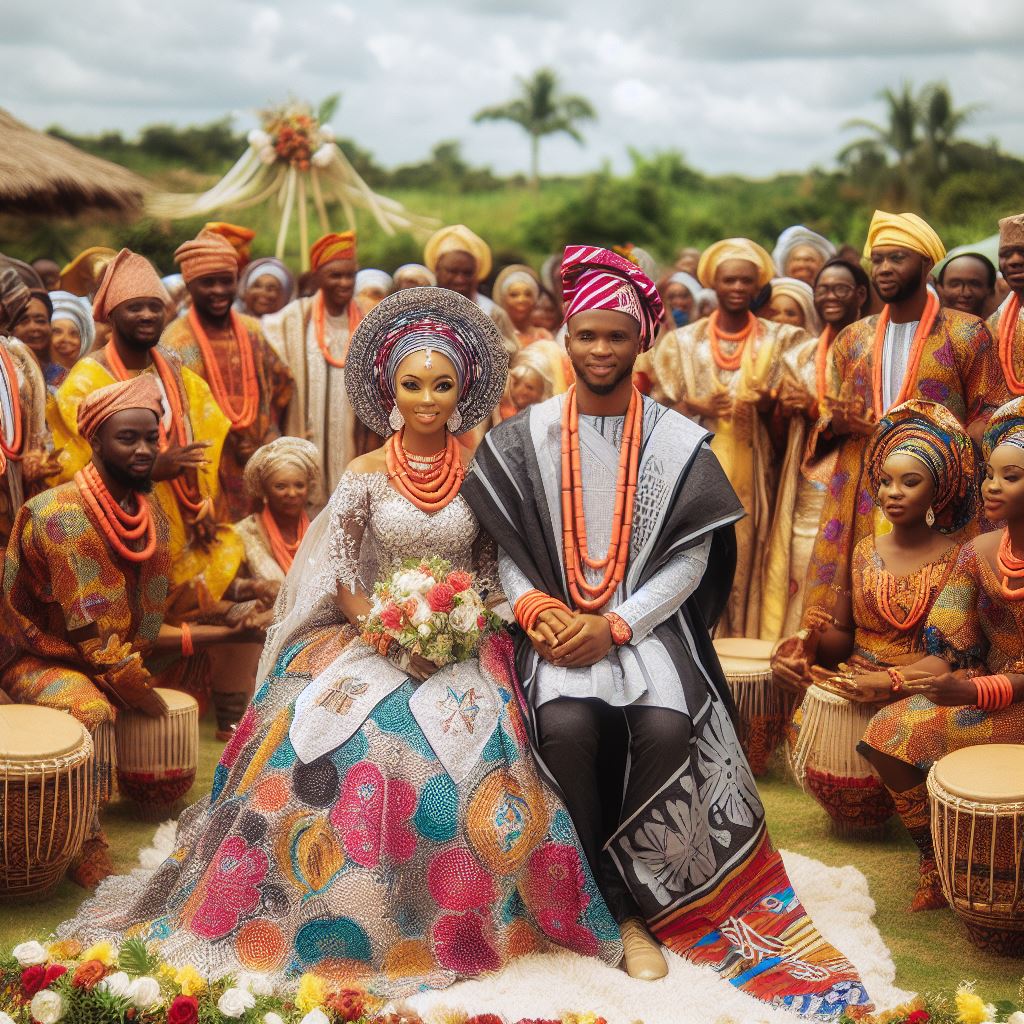
Benefits and Advantages
Marriage by Ordinance, also known as statutory marriage, offers several benefits and advantages in Nigeria.
This legal form of marriage provides couples with legal protection, recognition, simplified processes for divorce, and property rights.
Advantages of Marriage by Ordinance in Nigeria
- Legal Protection: Marriage by ordinance offers legal protection for both parties involved. It provides a solid legal foundation for the relationship.
- Recognition: Statutory marriage is recognized by the Nigerian legal system and government. It ensures that the union is valid and respected by society.
- Simplified Divorce Process: In the unfortunate event of divorce, marriage by ordinance allows for a simplified process. The legal framework provides guidelines and procedures to dissolve the marriage.
- Property Rights: Statutory marriage grants couples property rights. It ensures that both partners have equal rights to property acquired during the marriage.
- Financial Security: Choosing marriage by ordinance provides financial security for the couple. This legal form of marriage allows for joint ownership and financial planning.
- Access to Legal Remedies: By choosing statutory marriage, couples have access to legal remedies and protections in case of any disagreements or disputes.
Other Advantages of Marriage by Ordinance
- Mental and Emotional Well-being: Knowing that their marriage is legally recognized and protected brings peace of mind and emotional well-being to the couple.
- Social Validation: Statutory marriage holds societal significance. It offers validation and acceptance from friends, family, and the wider community.
- Medical Benefits: Being legally married opens avenues for accessing medical benefits, such as health insurance coverage and the ability to make medical decisions for each other.
- Inheritance Rights: Marriage by ordinance ensures rightful inheritance of assets and properties in case of death. It protects the surviving spouse and any children from potential disputes.
Marriage by ordinance provides couples with a reliable and legally recognized foundation for their relationship.
It offers various advantages, including legal protection, simplified divorce processes, property rights, financial security, and access to legal remedies.
This form of marriage also brings emotional well-being, social validation, medical benefits, and inheritance rights.
By opting for marriage by ordinance, couples can enjoy these benefits and secure their future together.
Read: Top Venues for ‘Marriage by Ordinance’ Ceremonies in Nigeria
Conclusion
This blog post aimed to address the common myths surrounding “Marriage by Ordinance” in Nigeria.
Through debunking these misconceptions, it is important to emphasize the validity and benefits of this type of marriage.
Throughout the blog post, we discussed several key points. Firstly, we clarified that “Marriage by Ordinance” is a legally recognized form of marriage in Nigeria.
It carries the same weight and legitimacy as traditional and religious marriages.
Secondly, we debunked the misconception that “Marriage by Ordinance” is only for those who cannot afford traditional or religious weddings.
This is not true. Anyone, regardless of financial status, has the right to choose this type of marriage.
It provides a simpler and more cost-effective option for couples.
Another myth we addressed is the belief that “Marriage by Ordinance” lacks cultural and religious significance.
On the contrary, this type of marriage can incorporate cultural and religious elements if desired.
The couple has the freedom to personalize their ceremony and make it culturally relevant.
Lastly, we emphasized the need to consider “Marriage by Ordinance” as a valid and beneficial option.
It provides legal protection and recognition for couples, ensuring their rights and responsibilities.
It offers a streamlined process, reducing bureaucracy and simplifying the marriage registration.
In a nutshell, it is crucial to dispel the myths surrounding “Marriage by Ordinance” in Nigeria.
This type of marriage should be respected and recognized as a legitimate choice.
It provides an inclusive and accessible option for couples and fosters equality in marriage.

